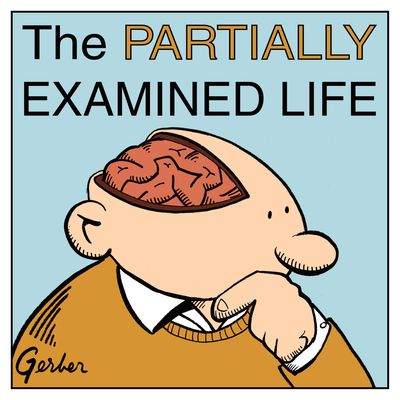The Partially Examined Life is a podcast by some guys who were at one point set on doing philosophy for a living but then thought better of it. Each episode, we pick a short text and chat about it with some balance between insight and flippancy. You don't have to know any philosophy, or even to have read the text we're talking about to (mostly) follow and (hopefully) enjoy the discussion. For links to the texts we discuss and other info, check out www.partiallyexaminedlife.com. We also feature episodes from other podcasts by our hosts to round out your partially examined life, including Pretty Much Pop (prettymuchpop.com, covering all media), Nakedly Examined Music (nakedlyexaminedmusic.com, deconstructing songs), Philosophy vs. Improv (philosophyimprov.com, fun with performance skills and philosophical ideas), and (sub)Text (subtextpodcast.com, looking deeply at lit and film). Learn about more network podcasts at partiallyexaminedlife.com.
http://partiallyexaminedlife.com
Episode 146: Emmanuel Levinas on Overcoming Solitude (Part Two)
Concluding Levinas's Time and the Other (1948), in which we talk about the present being freedom, before there's even a will! This sort of helps to justify the counterintuitive existentialist insistence that we are responsible for the current state of our life even if it didn't result from our choices. We also get another formulation of selfhood: Identity is when we depart from ourselves (i.e., get interested in something external) but then are in some way pushed back into ourselves, such as by resistance. One of the chief things that resists our efforts is our own body, so being an individual, i.e., being free, is at the same moment being encumbered by, responsible for a body. As a correlate of this, our primary mode of dealing with the external world, before we get around to using things as tools or explicitly contemplating them as knowledge, is as material to nourish our bodies: we enjoy the world. This is in contrast both to Heidegger and to more dour versions of existentialism.
Finally, we get the end of L's story about how we can authentically recognize the Other as Other, and so overcome the solitude inherent in existence. Yes, there's ethics and death involved, and time, but new here is the erotic, not in the sense of ecstatically losing yourself in pleasure, but in actively, immediately, physically pleasing another person. So yes, this is a fancy chain of ontological reasoning that ends up telling you to get over yourself by going out and getting some good lovin'. Yay, Jewish existentialism!
Listen to part 1 first, or get the ad-free, unbroken Citizen Edition. Don't forget, please support PEL!
End song: "Call on You" by Mark Lint from from the 1993 Mark Lint album Spanish Armada: Songs of Love and Related Neuroses. The song was written in 1987 when I was 16, so it's extra gooey!
Sponsors: Get your free month of The Great Courses Plus at thegreatcoursesplus.com/PEL. Also, check out Gulf Breeze Recovery at www.gulfbreezerecovery.com.
